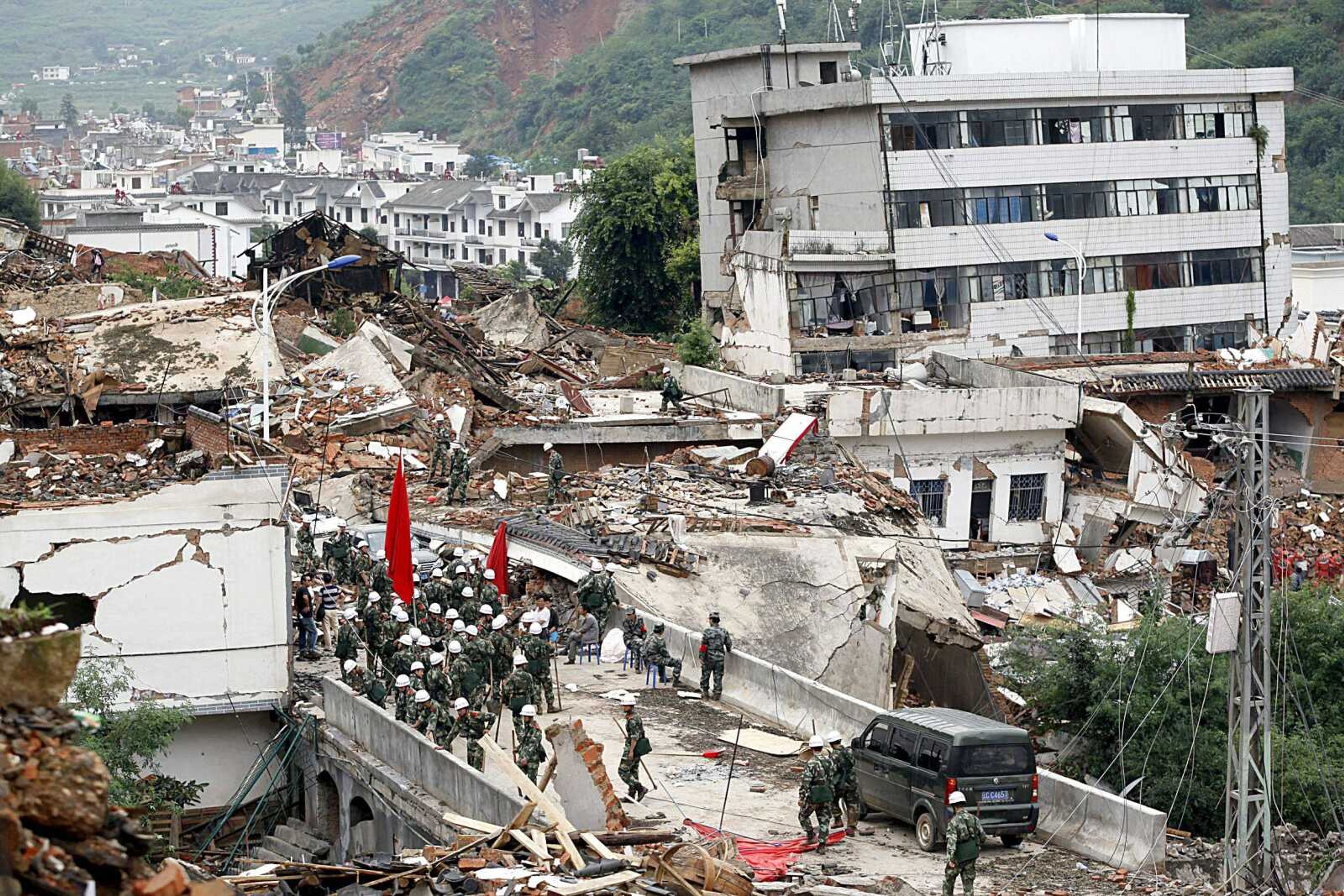Survivors found after deadly China quake
KUNMING, China -- Rescuers found scores of survivors Monday as they dug through homes shattered by an earthquake in southern China that killed at least 398 people and injured more than 1,800. Rainstorms were expected to continue to hinder rescue efforts in the coming days...
KUNMING, China -- Rescuers found scores of survivors Monday as they dug through homes shattered by an earthquake in southern China that killed at least 398 people and injured more than 1,800. Rainstorms were expected to continue to hinder rescue efforts in the coming days.
About 12,000 homes collapsed when the quake struck Sunday afternoon in impoverished Ludian county, around 230 miles northeast of Yunnan province's capital, Kunming, the official Xinhua News Agency reported.
Rescuers digging in the debris by hand freed a 5-year-old boy whose legs were injured, Xinhua reported. It also said firefighters rescued 32 people who had been trapped but had retrieved the bodies of 43 residents.
Drenched survivors, including some half-naked, were sitting along muddy roads in the rain waiting for food and medication, Xinhua reported. Medics were reporting severe shortages of medicine and an inability to perform operations on the severely injured, while rescuers said their work had been hampered by continuous downpours and quake-triggered landslides, Xinhua said.
Ma Yaoqi, an 18-year-old volunteer in the quake zone, said by phone that at least half of the buildings had collapsed on the road from the city center of Zhaotong to the hardest-hit town of Longtou. The rest of the buildings were damaged, she said.
"I saw dead bodies being wrapped in quilts and carried away," said Ma, who arrived with 20 other volunteers Monday. "Some were wrapped with small quilts. Those must be kids."
Overhead footage of the quake zone shot by state broadcaster CCTV showed older houses flattened but newer multistory buildings still standing.
The magnitude-6.1 quake struck at 4:30 p.m. on Sunday at a depth of 10 kilometers (6 miles), according to the U.S. Geological Survey. China's earthquake monitoring agency put the magnitude at 6.5.
The central government has allocated 600 million yuan ($97 million) for rescue and relief work after the quake, the Finance Ministry said.
Dozens of trucks carrying paramilitary troops with banners declaring "Help is on the way" traveled along the four-lane highway from Kunming to Zhaotong on Monday evening.
Heavy rain and thunderstorms in the area were complicating efforts to bring tents, water, food and other relief supplies to survivors. Roads had caved in, and rescuers were forced to travel on foot.
The national meteorological center said the area near the center of the quake would suffer thundershowers during the next three days.
Repeated aftershocks also were making the rescue work dangerous.
The Yunnan Civil Affairs Bureau said on its website that 398 people were killed, three were missing and a further 1,801 injured. The death toll is expected to rise after rescuers reach remote communities to assess casualties. About 230,000 people had been evacuated.
Many of the homes that collapsed in Ludian, which has a population of about 429,000, were old and made of brick, Xinhua said, adding that electricity and telecommunications were cut off in the county.
The mountainous region where the quake occurred is largely agricultural, with farming and mining the top industries, and is prone to earthquakes.
More than 2,500 troops were dispatched to the disaster region, Xinhua said. The government also sent thousands of tents, quilts, sleeping bags, cotton coats, folding beds, chairs and tables, and 50 mobile toilets, Xinhua said.
Chinese Premier Li Keqiang reached the worst-hit area Monday afternoon to oversee quake relief, state media reported.
In 1970, a magnitude-7.7 earthquake in Yunnan killed at least 15,000 people, and a magnitude-7.1 quake killed more than 1,400 in 1974. In September 2012, 81 people died and 821 were injured in a series of quakes in the region.
In May 2008, a powerful quake in Sichuan province left nearly 90,000 people dead or missing.
------
Associated Press writers Jack Chang and Louise Watt in Beijing and news assistant Fu Ting in Shanghai contributed to this report.
Connect with the Southeast Missourian Newsroom:
For corrections to this story or other insights for the editor, click here. To submit a letter to the editor, click here. To learn about the Southeast Missourian’s AI Policy, click here.










